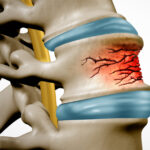New data supports a role for vitamin D in the treatment of psoriasis.
Getting more vitamin D reduces psoriasis severity, new research suggests.
Vitamin D has long been thought to modify psoriasis symptoms by modulating the effects of the immune response. However, up until now, the limited research exploring the links between vitamin D and psoriasis severity has yielded inconclusive results.
Now, in one of the largest studies on this topic to date, researchers have found a person’s vitamin D levels can influence psoriasis severity.
In the case-controlled study that included almost 500 psoriasis patients, lower serum vitamin D levels were found to be associated with more severe psoriasis after controlling for relevant lifestyle factors such as age, gender, BMI and smoking.
Patients with the least body surface area affected by psoriasis had higher average vitamin D levels (67nmol/L) than patients with greater affected body surface area (56nmol/L).
The researchers also observed an association between vitamin D deficiency and the self-reported body area affected by psoriasis, with 39% of patients in the highest affected body surface area group being vitamin D deficient compared to 25% of patients with the lowest affected body surface area group.
“With growing public interest in vitamin supplementation, we wanted to further examine the connection between vitamin D levels and psoriasis severity”, said the researchers who presented the findings at NUTRITION 2023, the annual meeting of the American Society for Nutrition in Boston.
“Few studies have looked for this association in groups of people, especially in large US populations, or examined this relationship through a clinical nutrition lens.”
Almost 500 psoriasis patients were identified from a cohort of 40,000 participants in the National Health and Nutrition Examination Survey over an eight-year period.
“[This] more than tripled the number of psoriasis cases analysed [compared to previous research published in 2013], making our results more up-to-date and statistically powerful than previously available data,” the authors said.
Most foods contain low levels of vitamin D, with fish and fish liver oil suggested as the best sources. Egg yolks, cheese, and some types of mushrooms contain smaller amounts of vitamin D. Vitamin D supplements are also available.





